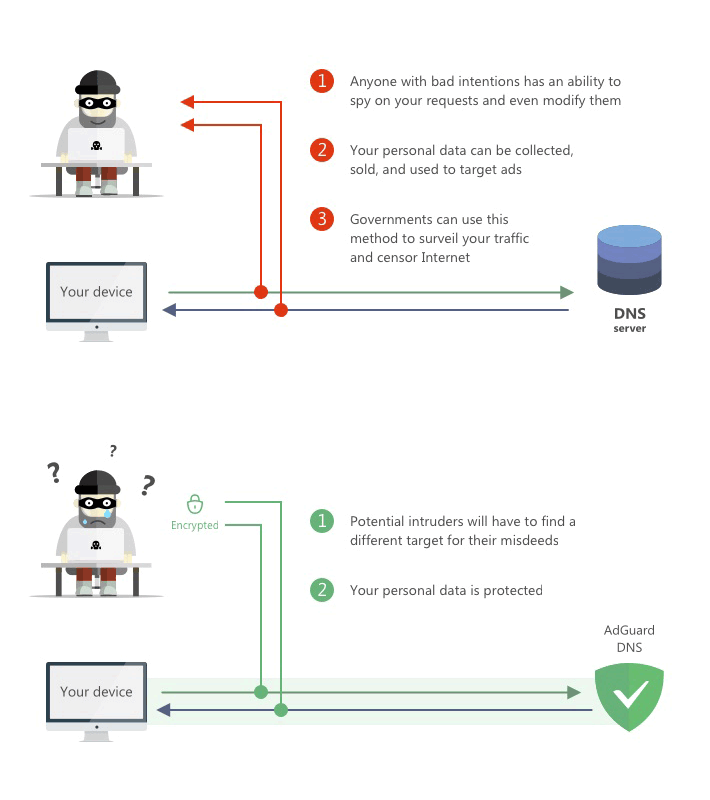

Using a non-filtering AdGuard DNS server is set by default in AdGuard VPN.

However, this cannot be considered a leak. If you enable AdGuard VPN on your device and run a check on any of the scanner websites, it finds that DNS queries go to the AdGuard DNS servers. Why there are no DNS leaks in AdGuard VPN When VPN is disabled and the requests go to your ISP's DNS server, the IP address of the DNS server and your own one do not coincide. In reality, such a match may indicate the use of a VPN. Some security scanning websites consider the coincidence of the user's IP address and the DNS server's IP address to be a "good" result, indicating that there are no leaks.

It should be understood that these websites themselves are not perfect and their algorithms are not clear, as opposed to their intentions to intimidate users with imaginary leaks and potentially sell some service. There are all sorts of anonymity check services for detecting DNS leaks, such as. In this way, your ISP sees all your online activity and can track you. In other words, every time you open a website, your browser sends a request to the ISP's DNS server and in return receives the IP address of the requested website. When you use a VPN, a connection to a DNS server may travel outside of the encrypted VPN tunnel and your traffic may become visible to the ISP. We'll explain where these concerns come from and why they are unfounded. Nevertheless, in some cases you may suspect the presence of DNS leaks in our VPN service. AdGuard VPN reliably protects your traffic and your data from prying eyes. Once you install a VPN, you want to be sure that there won't be any leaks that will lead to your de-anonymization.


 0 kommentar(er)
0 kommentar(er)
